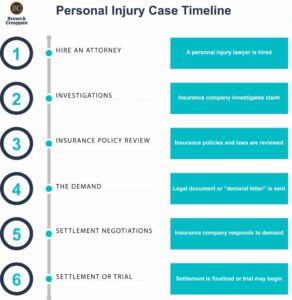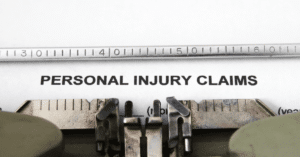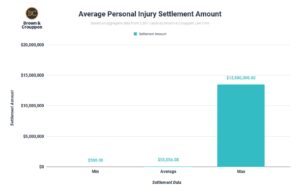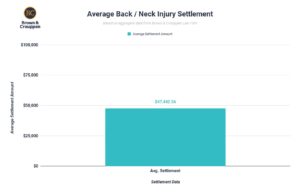ABOUT KANSAS’S STATUTE OF LIMITATIONS
States have civil statutes of limitations that provide a timeframe during which claims or prosecutions can proceed. For civil cases, the personal injury statute of limitations in Kansas generally starts running on the date of injury or death. Under certain circumstances, such as in malpractice claims, it starts on the date a plaintiff knew of or could have reasonably discovered their injuries.
A civil statute of limitations aims to clearly define when potential plaintiffs must file their claims. Time limits also protect potential defendants by not forcing them to face liability claims that would be difficult to defend due to the passage of time.
Various Kansas statutes of limitations and exceptions are based on who is bringing the claim, what kind of claim it is, and the party the claim is against. An experienced attorney can tell you what type of claim you have and explain other laws that may affect your filing time limit.
Negligence Claims
Under Kansas Statutes section 60-513, the state generally grants plaintiffs two years to file negligence claims. Negligence cases often involve injuries from motor vehicle collisions, slips, trips, and falls due to dangerous conditions on another’s property, dog bites, and other injuries caused by an act or omission by a person or business.
The statute of limitations in Kansas negligence claims generally starts running on the date of injury. This does not mean the case must reach a verdict or settlement within two years.
Wrongful Death Claims
If an accident or other incident results in a fatality, the Kansas wrongful death statute of limitations also allows for two years to file a claim. The clock typically starts when the injury occurred, and no case can be filed more than 10 years after the injury date.
In wrongful death claims, the deceased’s family members or their estate representative can step in for the deceased if they could have filed a personal injury claim themselves had they lived.
In cases where the injury date goes unnoticed, the statute of limitations for wrongful death will start running on the date of death rather than the date of the initial incident.
Minor Plaintiffs
Under Kansas Statutes Section 60-515, minors typically have one year following their 18th birthday to file a claim. However, they cannot file a lawsuit more than eight years following the incident that led to their injuries.
If parents or guardians settle a case when the injured plaintiff is still a minor, they will often need court approval.
Product Liability Claims
In Kansas, the statute of limitations for product liability claims is also two years. Product liability refers to the legal responsibility of a manufacturer or seller to ensure that their products do not harm people.
An attorney can base a product liability claim on defective design, such as with inherently dangerous products or missing safeguards. They may also base it on hidden defects, malfunctions, defective processes, or a failure to warn of hazards.
Medical Malpractice Claims
The statute of limitations for medical malpractice in Kansas is two years. If patients are unaware of their harm, they can file later, but no more than four years after the doctor’s actions.
Medical malpractice is a specific type of law that deals with professional negligence. It includes any act or omission by a physician or other medical professional that injures a patient.
Many variables determine the timeline for filing a lawsuit in Kansas. If you or a loved one has been injured in or near Kansas City, contact the personal injury lawyers at Brown & Crouppen for a free consultation. We will determine the proper statute of limitations for your claim and file your case before you lose your chance at compensation.
Infographic
What Is the Statute of Limitations in Kansas for Various Claims?
- Negligence: Two years
- Wrongful death: Two years
- Product liability: Two years
- Medical malpractice: Two years, with exceptions, but not more than four years
- Minor plaintiffs: One year after their 18th birthday, no later than eight years after the incident
Don’t risk losing your chance to collect compensation. Call the experienced team at Brown & Crouppen today at 800-536-4357 so we can get started on your claim.
Kansas Statutes of Repose
A statute of limitations dictates filing timelines for lawsuits based on the date of a plaintiff’s harm or discovery of their harm. A statute of repose is a different type of deadline. Under these statutes, plaintiffs lose the right to file claims based on the length of time after an event unrelated to harm.
For example, Kansas Statutes Section 60-3303 includes a 10-year time limit on product life spans. Manufacturers and sellers are generally not liable for harm caused by their products if used after their expiration date. People who continue using an older product assume the risk of that use.
While exceptions exist, such as for warranties longer than 10 years, plaintiffs must show why they still have the right to file a product liability claim after 10 years.
Deadline Extensions and Exceptions to the Kansas Statute of Limitations
In most cases, there’s no way to avoid the statute of limitations. You must formally file a suit within the required period, or you will give up your right to seek compensation. The main exception is the delayed discovery rule, which is codified in Kansas Statutes Section 60-515.
Delayed discovery suspends the running of statutes of limitations when plaintiffs didn’t discover or could not have discovered their injuries through due diligence. In other words, they didn’t realize they had a cause of action against the party that harmed them. The delayed discovery rule often applies to the Kansas medical malpractice statute of limitations.
Kansas Statutes Section 60-515 gives minors more time to file a claim, and it also addresses people with disabilities. They have one year after the removal of the disability to file but no more than eight years after the date their harm occurred.
314-222-2222


Were you injured in an accident due to someone else’s negligence? Get legal help from the most effective injury law firm in the Midwest.
Why is it Important to File Your Personal Injury Claim as Soon as Possible?
Your attorney needs time to gather critical documentation and evidence and build a strong case for you. In more complex claims, your attorney may use expert witnesses, and it may take time to find the right ones. An expiring Kansas personal injury statute of limitations can lead to rushed decisions and weaker evidentiary arguments.
Filing your claim promptly also preserves evidence that might otherwise disappear:
- Road crews or the weather may destroy crash evidence.
- Video footage may be erased or overwritten.
- Property owners may fix hazards.
- Witness memories can fade.
The closer you get to the deadline, the more likely insurance companies will delay negotiations and reduce settlement offers. Insurers know when you are about to lose the right to sue based on the statute of limitations on injury claims, which weakens your ability to negotiate.
The sooner you file, the quicker you can achieve a resolution. Don’t let an expiring statute of limitations on personal injury claims take away your rights or chance of receiving fair damages.
What Happens if I Don't File My Claim on Time?
If you fail to file before the statute of limitations for your claim expires, your attorney may argue that there are applicable exceptions. A judge will likely dismiss your claim regardless of its strength if no exceptions apply. This leaves you without compensation and the peace of mind you get from holding the other party liable for their actions.
An experienced injury attorney can determine the statute of limitations that applies to your case and advise you of your legal options. Don’t give up on a potential claim without seeking guidance.
Get Help With Filing Your Kansas Personal Injury Claim
Judges are strict when they apply the personal injury statute of limitations in Kansas. Missing your deadline by even one day will likely cost you a chance at compensation. Don’t take that risk. Partner with our accomplished legal team to assist you in filing your claim on time.
At Brown & Crouppen, our personal injury lawyers have over 40 years of experience, an in-depth knowledge of Kansas law, and a history of success. We know applicable legal deadlines and start working on claims immediately to preserve evidence and give our clients a chance at fair compensation.
Don’t delay—call us for a free consultation today at 800-536-4357 or complete our online contact form. There are no upfront costs or legal fees. You only pay us if we win.








